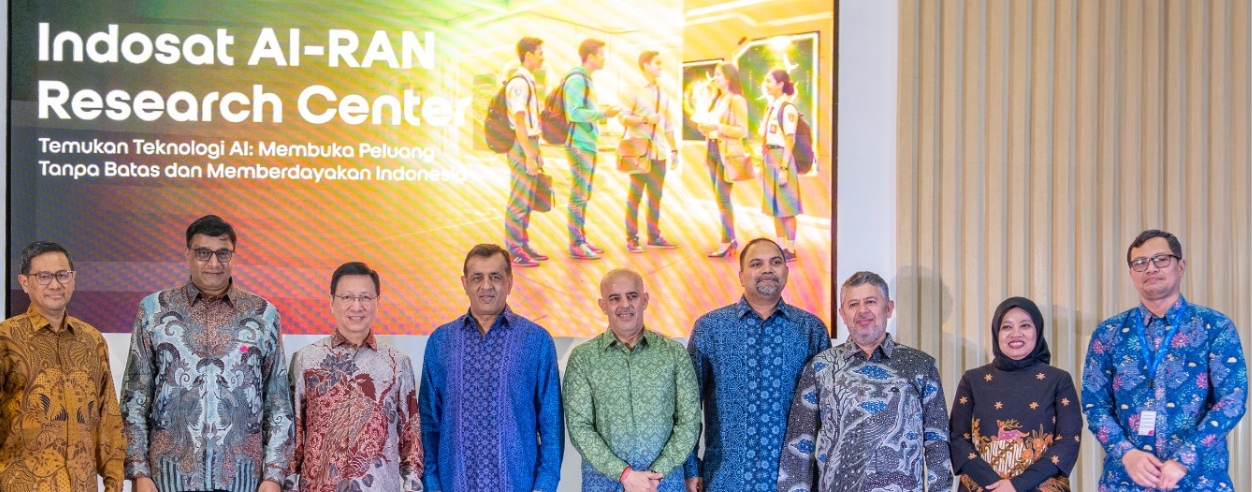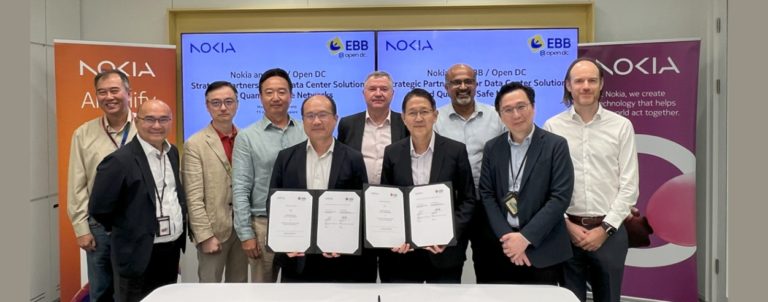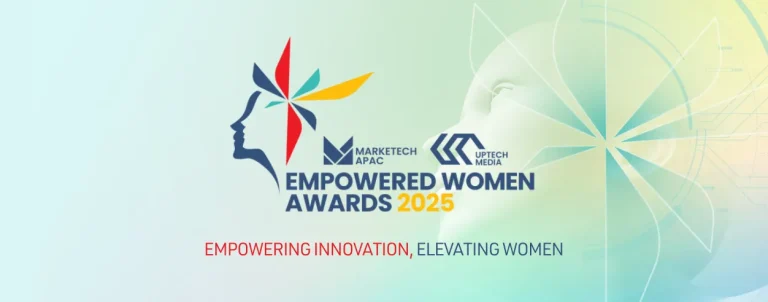Surabaya, Indonesia – Indosat Ooredoo Hutchison, Nokia, and NVIDIA have inaugurated a research centre in Indonesia, dedicated to the development of AI-powered radio access networks (RAN). The facility is designed to advance AI-native wireless networks and foster the growth of edge AI applications across the country, creating a collaborative environment for engineers, researchers, and digital innovators to explore and develop AI solutions.
The centre forms part of a broader initiative to establish an AI infrastructure known as the ‘AI Grid,’ which connects central AI computing facilities with distributed RAN hubs, enabling AI applications to operate across data centres and 5G networks.
This approach aims to improve network performance, energy efficiency, and scalability through AI and ML techniques applied to radio signal processing, while facilitating more intelligent and adaptive mobile connectivity for users nationwide.
“As Indonesia accelerates its digital transformation, the AI-RAN Research Centre reflects Indosat’s larger purpose of empowering Indonesia,” Vikram Sinha, president director and CEO of Indosat Ooredoo Hutchison, commented.
He added, “Together with Nokia and NVIDIA, we’re building the foundation for AI-driven growth that strengthens Indonesia’s digital future. When connectivity meets compute, it creates intelligence— delivered at the edge, in a sovereign manner.”
By integrating high-performance software-defined RAN with AI applications, the facility will leverage NVIDIA’s accelerated computing platforms alongside Nokia’s RAN technology and Indosat’s commercial network.
This combination supports the development of AI-driven optimisation tools that enhance network reliability and capacity, providing a foundation for eventual commercial deployment of AI-enabled RAN.
“The new AI-RAN Research Centre unlocks new AI-powered innovations for Indonesian consumers and enterprises, while fundamentally re-architecting wireless networks to deliver greater performance and efficiency for the AI era,” Ronnie Vasishta, senior vice president of telecom at NVIDIA, stated.
Beyond technical advancements, the research centre is also intended to strengthen human capital in Indonesia by offering practical learning opportunities in AI and telecommunications. The programme aims to cultivate domestic expertise and accelerate knowledge transfer, aligning with national objectives to promote digital innovation and develop a homegrown AI talent pipeline in support of Indonesia’s long-term economic vision.
“We are demonstrating how AI can fundamentally transform the performance and intelligence of telecom networks as well as building solid foundations for Indonesia’s digital future,” Pallavi Mahajan, chief technology and AI officer at Nokia, commented.
The initiative is expected to extend AI-enabled connectivity to sectors including education, healthcare, and agriculture, demonstrating how advanced network intelligence can enhance public services and business operations.
By combining computing power with connectivity, the centre is positioned as a key enabler of AI applications that improve accessibility, efficiency, and digital inclusion throughout Indonesia.











